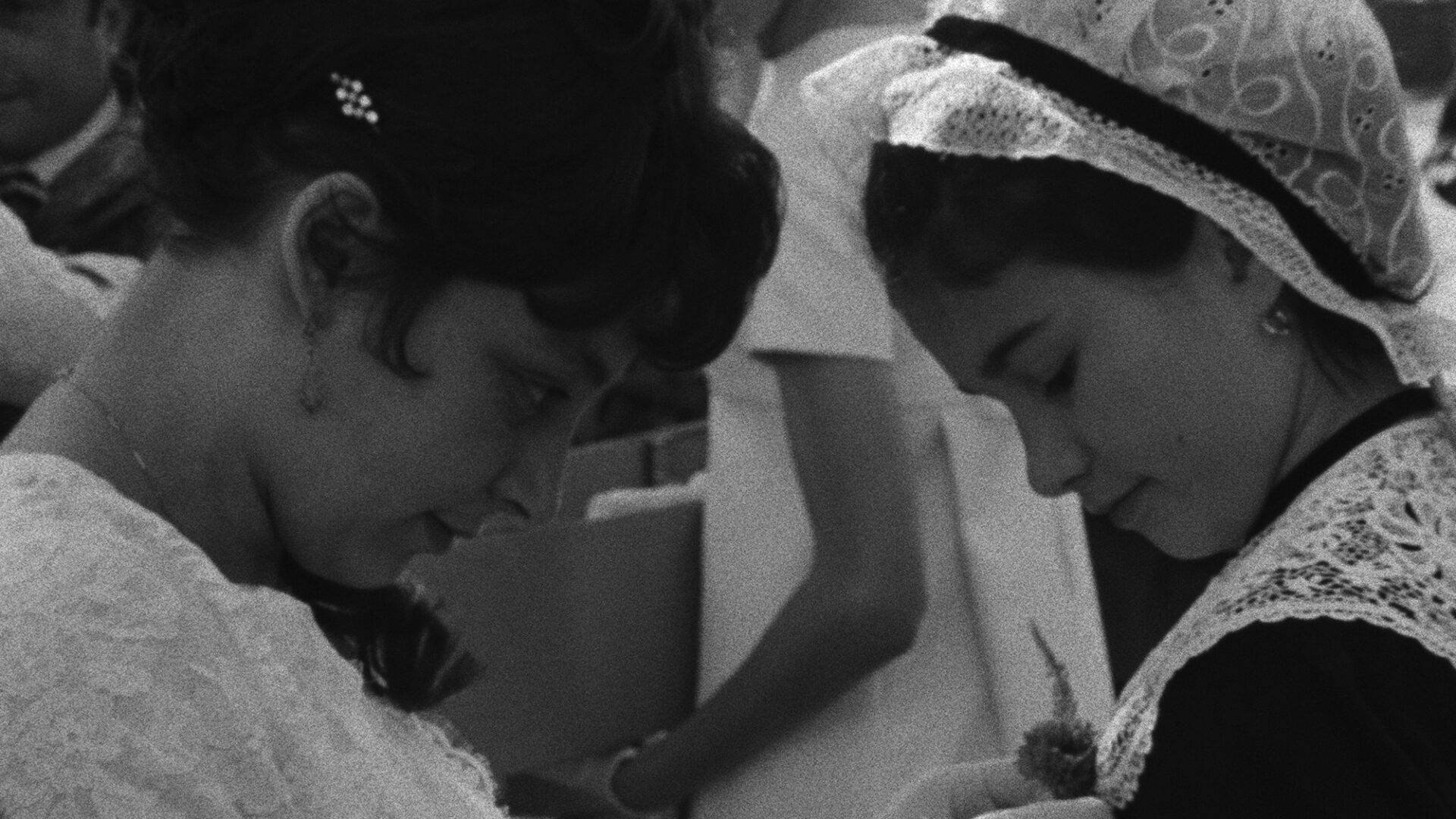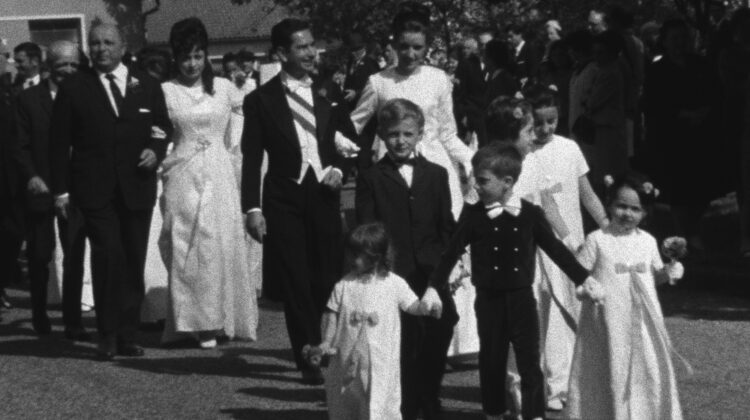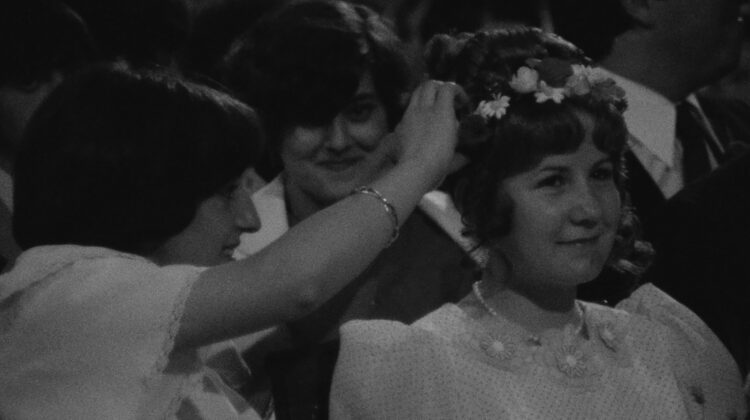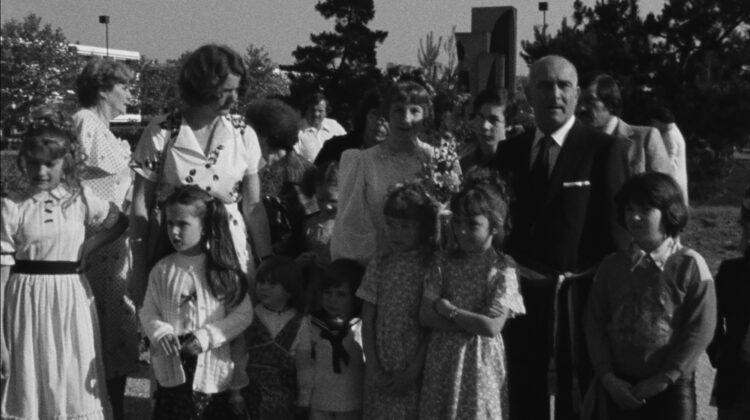When the Camera Is On, Cinema Is Happening: The Complete Works of Jean Eustache
- The Virgin of Pessac ’79 & ’68
- Jean Eustache
- 137
- NR
- The Complete Works of Jean Eustache
Screening Dates
- July 17, 2023 8:30
- July 27, 2023 8:20
“[These] films provide a slightly surreal feeling of exactitude … One of the great filmic documents on contemporary France: a document in the sense that everyone can come to learn something from it.”
Serge Daney, Cahiers du cinéma
Jean Eustache’s first “documentary” (a mode the director would devote his career to delegitimizing) is a hilariously deadpan portrait of his provincial hometown’s annual rosière contest. Shot in 1968 with the mayor’s permission, the ethnographic almost-comedy profiles the surreal, community-consuming campaign to crown the most “virtuous” woman in the village. The criteria: be of marriageable age, a virgin, and a paragon of modesty and moral upstanding. The proceedings, captured with unfussy, observational directness, reveal the petty hypocrisies and political high-handedness of the centuries-old tradition, made especially anachronistic against the tumult of May ’68. Despite appearing as comic relief, the bumbling mayor loved the film. Ten years later, Eustache returned to film a colour sequel, which unfolds in roughly the same manner, only now in a Pessac contending with modernity. The passage of time is reversed in Eustache’s preferred ordering—“a way of telling people: if you want to know how it was before, stay, you’ll see” (Eustache).
The Virgin of Pessac ’79
(La rosière de Pessac 79)
France 1979
Jean Eustache
71 min. DCP
The Virgin of Pessac
(La rosière de Pessac)
France 1968
Jean Eustache
66 min. DCP
In French with English subtitles
“There’s certainly an element of absurdity, of provincial comedy, here … but like Le cochon, the beauty of these films lies in Eustache’s enthusiastic acceptance of the contradictions at play.”
Jared Rapfogel, Senses of Cinema
“The natural ambiguity of La rosière de Pessac is so much stronger and less artificial than any conceived by screenwriters. Eustache’s film is a triumph of unprompted deadpan humour.”
Luc Moullet, Film Comment



